If your enterprise is in the business of transporting hazardous liquids such as oils, fuels and chemicals, you understand the threat that a spill can pose and just how crucial spill control and containment are.


In fact, in early December 2020, 9News Sydney reported an accident in the south of Sydney in which a truck had overturned, resulting in the spill of up to 500L of both fuel and oil.
The incident took down a nearby power pole and caused a small fire at the location. This example highlights the danger of operating around these liquids and the importance of using spill-contained pallets when moving hazardous liquids across the country.
Spill containment bunded pallets have become absolutely essential for the shipment of various types of liquid goods. Effective transportation of hazardous and valuable liquid products has long been a primary concern of the shipping and logistics industries. Ensuring that goods are safe and in proper, manageable condition during transit. It is not only vital to the safety of all who work in the supply chain, but it is also necessary to comply with regulations. Overcoming this challenge, amidst the growing need for safe chemical and pharmaceutical shipping practices, has seen a rise in demand for pallets that are both sturdy and also able to contain spills.
Let’s take a closer look at the specifics of spill containment pallets and the benefits they offer. By gaining a better understanding of what these products are you will be better placed to understand why they’re useful to your company.
What Are Spill Containment Products?
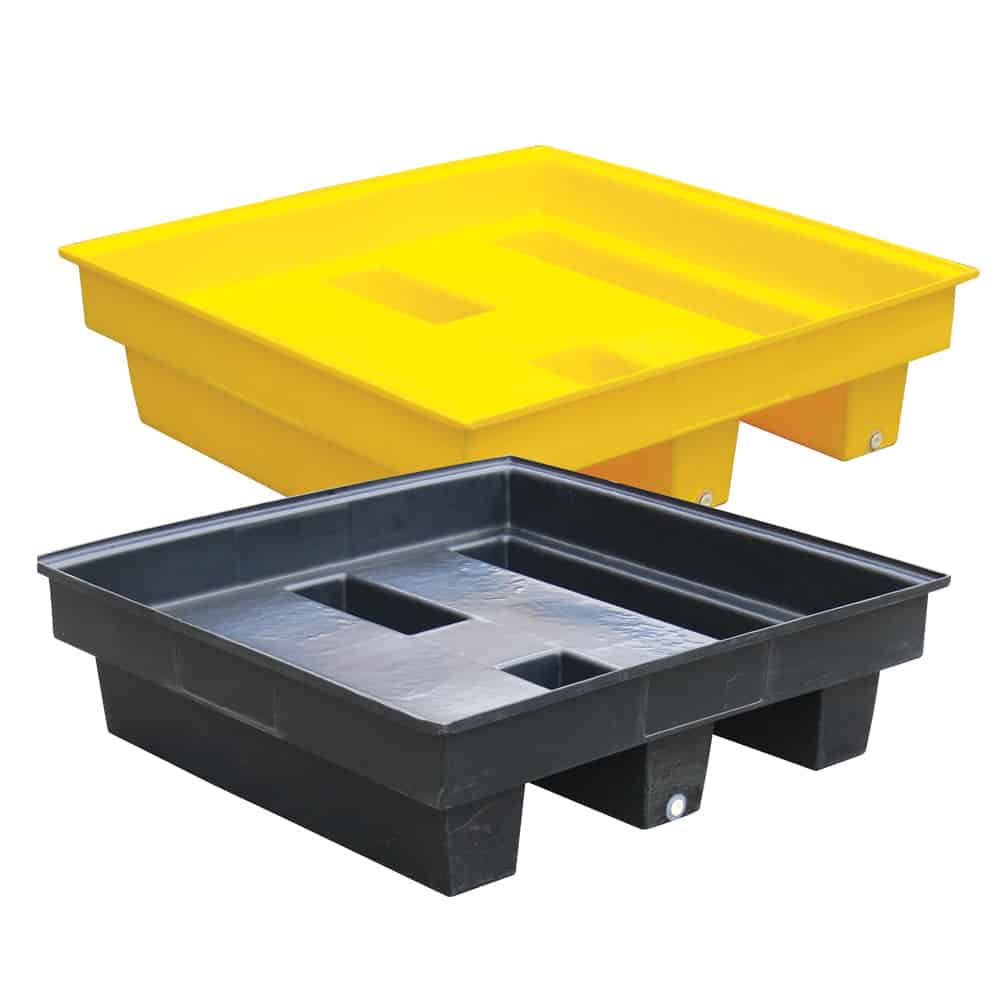

Spill containment products envelop a broad range of shipping pallets specifically designed to catch and contain liquid spillage as it occurs. They are typically made from high-density polyethylene (HDPE) material as this is highly resistant to most corrosive liquids and common chemicals. HDPE material also makes for a dependable, sturdy and easy-to-clean pallet surface, which can be reused for multiple journeys.
Six of the key benefits of spill containment products are highlighted below.
- Time-saving – Although companies will do their best to prevent hazardous materials from spilling while being moved, inevitably this will still happen on occasion. When normal pallets are used, these spills are exceptionally difficult and time-consuming to safely clean. This can also place employees or others at risk and is costly. However, when spillage containment pallets are being used, they automatically collect the materials in question, making cleaning up the mess significantly easier.
- Longevity – The high-quality plastic material used to make spillage containment pallets is impervious to moisture, chemicals, and contaminated dust and mould. This means they are immune to warping and can retain their tactile strength over time. Realistically, this means they are usable for upwards of 10 years, making them exceptionally good value for money.
- Worker Safety – For companies that often transport hazardous liquids, the possibility of spillage presents a constant risk to employees. If non-specialist pallets that haven’t been designed for spill containment are used, then this risk becomes exponentially worse. But by using the correct spill containment pallets, you can prevent any liquid from escaping. Thus, protecting employees from having to clean up the mess or coming into contact with leaked liquids.
More Benefits of spill containment products
- Easy to clean – The very nature of spill containment means that pallets used for transportation are likely to need regular cleaning. Plastic spill containment pallets have smooth, heat-sealed surfaces that are resistant to moisture. They can therefore be thoroughly cleaned using steam or other low-cost methods. As such, no matter how high the hygiene standards of the product are, plastic pallets can be used repeatedly with no sanitation concerns.
- Easily transportable – Many spill containment pallets are specifically designed for transportation and warehouse processes. They are therefore built to be easily moved by forklift or pallet jacks. Their rigidity and structure also make them stackable.
- Compliant – Reliable and effective spill containment is useless if it does not comply with the various regulations surrounding chemical transportation. As a result, spill containment pallets should be fully compliant with all home and international requirements.
How Can Spill Containment Products Simplify Containment Procedures?
Using spill containment products when transporting liquids can make hazardous containment procedures simpler and easier to enact. For instance, the New South Wales NSW Department of Primary Industries has guidelines on containment procedures for chemical spills. They state that businesses who are faced with a spillage should:
- Manage the source of the spill – Take whatever steps are necessary to stem the flow of the hazardous material.
- Contain the spill – Ensure that the spilt substances are contained in as small an area as possible to prevent them from spreading and causing more harm.
- Isolate the affected area – Prevent people from gaining access to the area affected by the liquid spillage.
- Contact the relevant authorities – Agencies that may need to be contacted include the fire brigade, the police, the ambulance service, any agencies listed on pesticide warning labels, and other public health authorities.
- Clean up the materials in question – Safely contain and dispose of the materials in question.
Now, when a company is using a spill containment product, steps two and five are automatically handled in the event of a spillage, and steps one and three are made much more convenient. The equipment is designed to catch any spillage and prevent it from escaping to a wider area.
Why You Should Consider Our Bunded Spill Pallets for Your Next Shipment
Of the wide range of bunded spill containment products available, such as our 4 Drum Low Profile Pallet, Eco Pallets Bunded Pallets. They are particularly well suited to meeting your hazardous and valuable liquid transportation needs.
Bunded pallets are spill containment systems designed to catch any leaks or drip from items stored on top of the bunded pallets.
The items being stored or shipped sit on a platform where a container lies underneath to catch escaping liquid. Bunded pallets are typically used for transporting products such as oils and chemicals, although they are also very useful for a range of other liquids such as food products. If any of these substances leak they may pose a great threat to those working in the vicinity or to the environment. In these circumstances, it’s important that any leaked liquid be quickly contained and then disposed of properly so that it doesn’t become a health and safety hazard.
Fortunately, that’s what our bunded spill pallets are designed to do. By containing all the liquid that inadvertently escapes a vessel due to a leak or any other mishap, these products prevent your workers from having to manually collect the materials. This keeps them safer, protects the environment and any members of the public who may potentially be harmed, and also saves time.
Benefits Of Eco Pallets Bunded Pallets
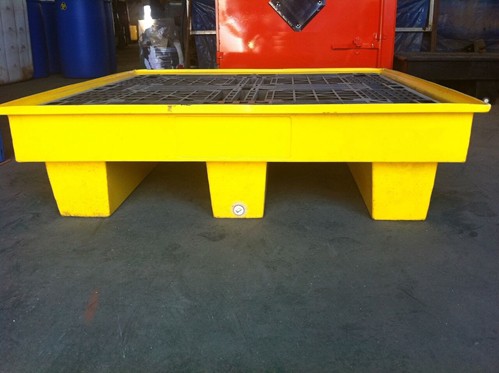

Eco Pallets bunded pallets are not only designed for the task of catching any spilled liquids that may come from the containers they are transporting. The plastic we use also has a range of other benefits that make them a significant upgrade to the wooden pallets still used by many companies today.
Wooden pallets retain moisture from their surroundings, which can interact with the chemicals used to treat the wood. This can sometimes affect the goods that they are being used to transport. In the worst cases, it has led to companies having to pay large sums of money because of product recalls.
Similarly, when wood becomes damp it can become a breeding ground for mould and bacteria, which also presents a serious hygiene threat to transported materials. Additionally, when there is a spillage of a liquid that is in transit this can often mean the end for the wooden pallet since it will likely soak up some of the substance.
By contrast, our plastic pallets are not absorbent at all, and as stated above can easily be cleaned with steam or other means. There is no risk of contaminating precious cargo or damaging the pallets themselves. Both are more effectively protected, thus saving money for the companies using them. Beyond this, plastic pallets last around 10 times longer than wooden ones. They are stronger, lighter, and save extra money on shipping costs as well.
What are the benefits of Plastic over Wood pallets?
Plastic has a number of other benefits over wood as a material for constructing pallets. In the first instance, plastic is completely safe from insect contamination. The rugged and sealed nature of our plastic pallets makes them impervious to insects and spiders. Industry watchdogs have long cited incidences of maggots, fly eggs, and other insect matter appearing in the transported materials.
While a lot of this can occur prior to the transportation process, all other factors being equal, plastic is a better preventative material than wood in mitigating these developments. Additionally, wooden pallets often have to undergo fumigation processes as a countermeasure to insect infestation and contamination. This procedure involves the use of methyl bromide, a highly toxic substance that, while efficient at killing bugs, also presents a serious hazard to humans and the environment. There is no need for this process to be used with our plastic pallets.
Finally, using plastic pallets also improves the health and safety conditions of your company. Because they are so much lighter than wooden pallets, the common workplace risk of harm that is related to heavy lifting is significantly reduced. Additionally, more minor injuries such as splinters, or cuts and abrasions from the nails found in wooden pallets, are all absent when plastic is used instead.
Good for your Business
We’ve already established that using our bunded spill pallets is good for your business. It saves money and more effectively protects your products and employees. However, yet another benefit of these products is the extra protection that they afford the environment.
In the first instance, when a toxic or hazardous liquid spills or leaks into the ground while being transported this can do serious damage to the local environment. Plant life, wildlife, and even local human populations can all suffer. If these materials make their way into places such as water reservoirs. But because our bunded spill pallets are specifically designed to catch these materials before they enter the ecosystem, they thereby protect the environment and the people inhabiting it.
Good for the Environment
There are also environmental benefits arising from the fact that our pallets are made from plastic rather than wood. While the latter may seem like the greener option, this is no longer the case. Making pallets from wood exacts a tremendous toll on forests. Range International estimates that around 40% of the world’s timber supply is accounted for by the construction of wooden pallets. It means the ongoing deforestation of the planet is being disproportionately influenced by wooden pallets – something we could avoid if more companies used plastic pallets instead.
A further environmental benefit of plastic over wood is that wood is much harder to recycle than plastic. Due to its absorbent qualities, wooden pallets are more likely to be tainted by the materials they transport. They also tend to come together with other materials such as nails, which further complicates the recycling process.
Further More…
However, because our pallets are so resilient, moisture-repellent, and strong, they are highly desirable to both recyclers as well as pallet companies. Indeed, the material is so valuable that many companies are willing to pay for used pallets. This means that you could conceivably make money while recycling your older pallets. As an added benefit for our customers, Eco Pallets offer free pallet pick up as well as payment for any pallets that you would like to recycle.
Finally, plastic pallets can be created out of recycled and repurposed materials, which helps avoid adding to the volume of waste material in the world. Additionally, they are also significantly more long-lasting and durable. This longevity means that there isn’t a high turnover of items being made, bought and discarded which is the case with wooden pallets.
When all of the above is taken into consideration along with your company’s environmental policies, the only sensible conclusion is to use plastic pallets for your shipping needs.
National And International Spill Containment Regulations
It isn’t just good practice or common sense to use bunded pallets. When transporting certain materials the use of a spill containment system is a legal requirement. Regulations vary according to what is being transported, and how dangerous it is deemed to be.
Every state and territory in Australia has tough rules around transporting these types of liquids. Take NSW for example. According to the state Environmental Protection Agency (EPA), “dangerous goods must only be loaded in transport units which are strong enough to withstand transport. Packages must be stowed and restrained within the transport unit as outlined in the load restraint guide.”
It is important to note that the EPA states that any package that has been damaged or has the potential to leak is not allowed to be used to transport liquids. This must be checked before every trip and loading process to ensure both the drivers, the general public, and the business that is receiving the goods are all safe.
Any Fines or Penalties for breaking above mention rules??
There are serious fines and penalties for businesses and individuals that break these rules and put others in danger. Standards Australia provides guidelines for different circumstances, although some states also have their own additional regulations. International requirements also vary and may require additional compliance.
It’s good practice to ensure that the bunded pallet selected can hold more than the total volume of the largest item stored on it. In theory, it is unlikely that every item on a given pallet should spring a leak at the same time. Therefore, a reasonable safety measure is that a spill containment system should be able to deal with a substantial amount of what is being transported. The material of the bunded crate must be resistant to the type of liquids being carried and evidence of spill containment systems availability may be asked for.
Which Industries Should Use Bunded Spill Pallets?
Any liquid shipment can benefit from a bunded pallet. Spills and leaks can be a safety risk even when the materials contained are not in themselves dangerous. Bunded pallets are especially useful for:
- Oil shipments
- Hazardous chemicals
- Flammable materials
- Pharmaceutical liquids
- Food and beverage shipments
So, How Can Eco Pallets Help In This Regard?
If you are looking for a transport option that is both reliable and has an effective spill containment reputation, look no further than the range from Eco Pallets. Compliant with all international spill containment regulations, our pallets offer a dependable solution to your hazardous liquid transportation.
The unique chemical composition of our spill containment pallets really sets our products apart from the competition. Made from high-density polyethylene, the pallets are chemically resistant to many liquids. And also give you peace of mind if there is ever an accident out on the road. We offer bunded pallets that are designed to hold up to four drums or containers such as the Eco Pallets ECO-BUNDED 230. Easy to clean and sterile, this particular offering has a high chemical resistance against acids and alkalis.
If you’re looking for spillage containment pallets that will take good care of your next transportation project, get in touch with the Eco Pallets Australia team, now. We are sure to have exactly what you need.
Thanks for visiting our plastic pallets news blog!
Next Post: Learn about the best pallet stacking and storage methods.


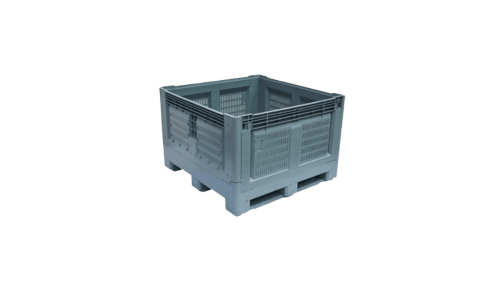


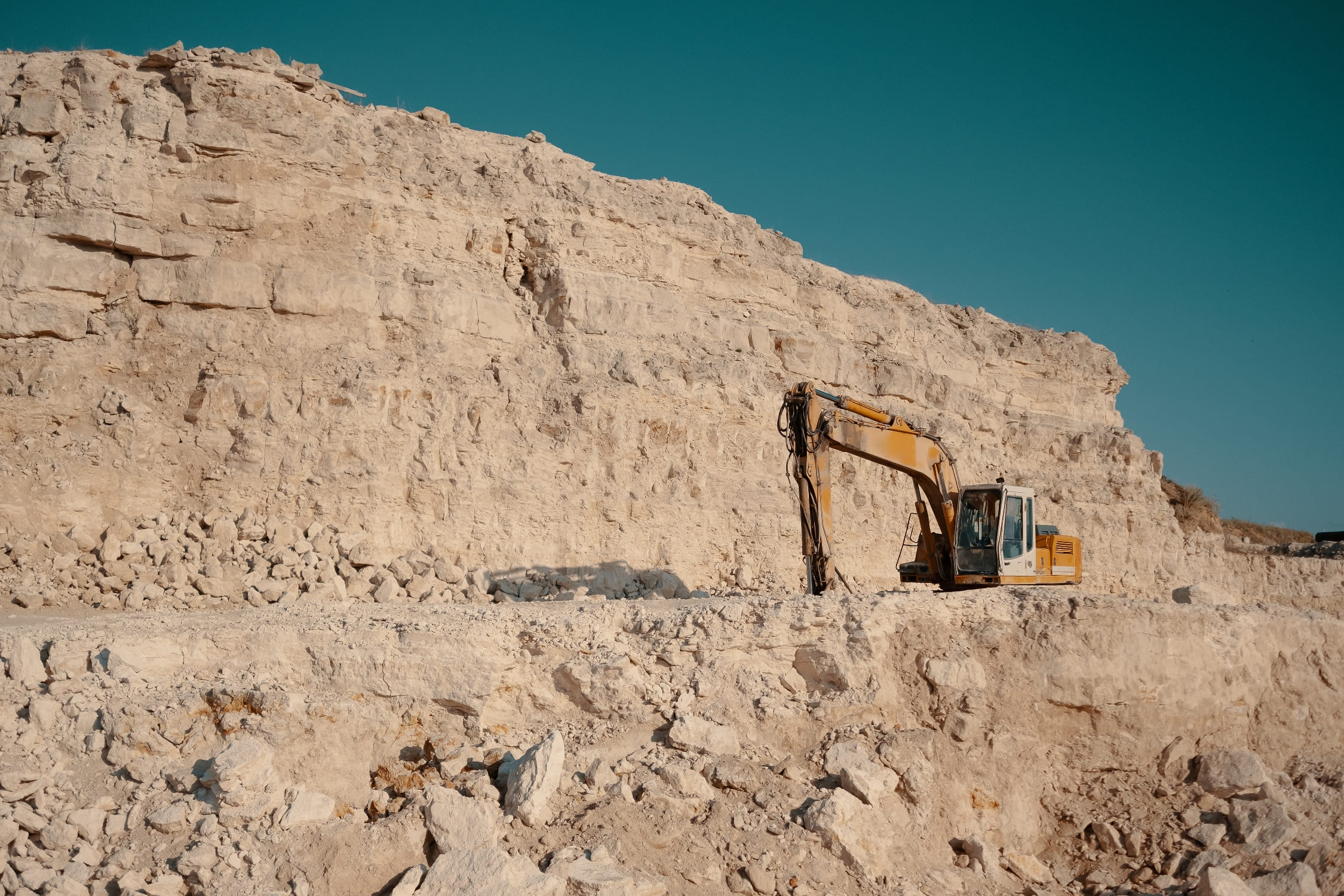

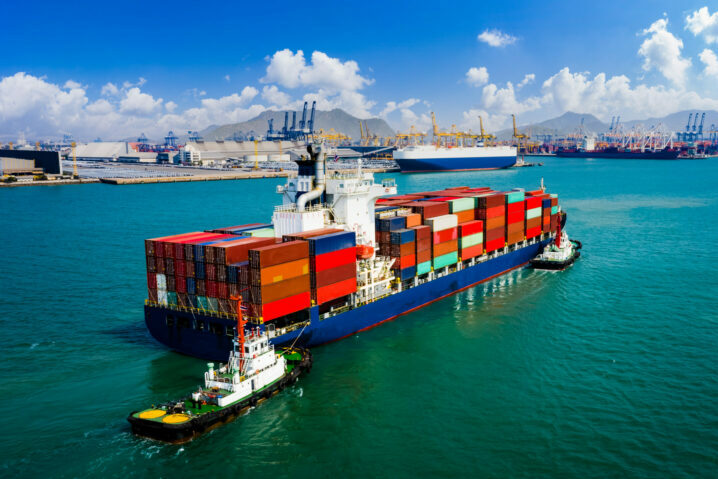

Comments are closed.